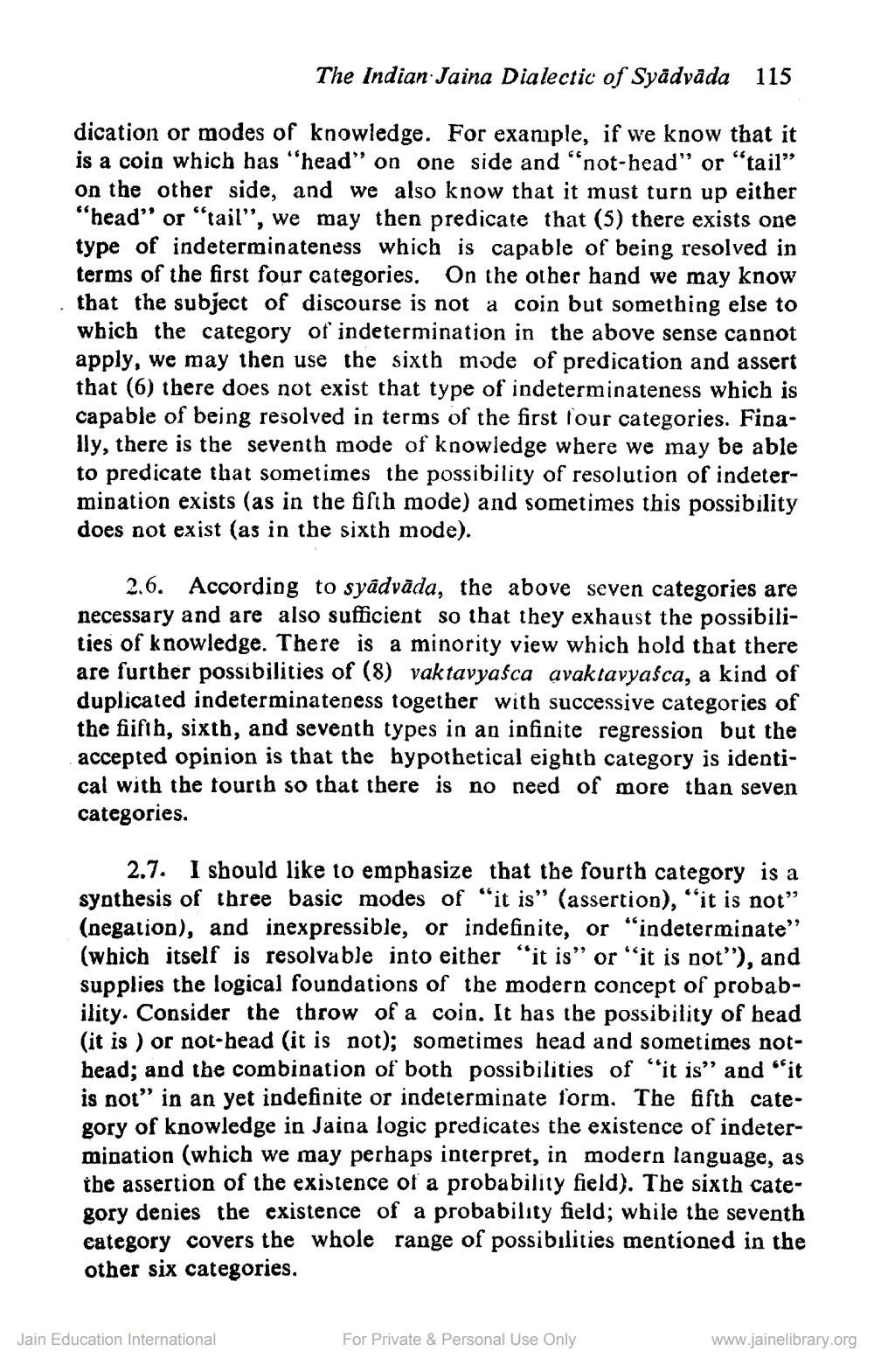________________
The Indian Jaina Dialectic of Syadvāda
115
dication or modes of knowledge. For example, if we know that it is a coin which has "head" on one side and not-head" or "tail" on the other side, and we also know that it must turn up either "head" or "tail", we may then predicate that (5) there exists one type of indeterminateness which is capable of being resolved in terms of the first four categories. On the other hand we may know that the subject of discourse is not a coin but something else to which the category of indetermination in the above sense cannot apply, we may then use the sixth mode of predication and assert that (6) there does not exist that type of indeterminateness which is capable of being resolved in terms of the first four categories. Finally, there is the seventh mode of knowledge where we may be able to predicate that sometimes the possibility of resolution of indetermination exists (as in the fifth mode) and sometimes this possibility does not exist (as in the sixth mode).
2.6. According to syâdvāda, the above seven categories are necessary and are also sufficient so that they exhaust the possibilities of knowledge. There is a minority view which hold that there are further possibilities of (8) vaktavyasca avaktavyasca, a kind of duplicated indeterminateness together with successive categories of the fifth, sixth, and seventh types in an infinite regression but the accepted opinion is that the hypothetical eighth category is identical with the fourth so that there is no need of more than seven categories.
2.7. I should like to emphasize that the fourth category is a synthesis of three basic modes of “it is" (assertion), “it is not" (negation), and inexpressible, or indefinite, or "indeterminate" (which itself is resolvable into either it is” or “it is not"), and supplies the logical foundations of the modern concept of probability. Consider the throw of a coin. It has the possibility of head (it is) or not-head (it is not); sometimes head and sometimes nothead; and the combination of both possibilities of “it is" and " is not" in an yet indefinite or indeterminate form. The fifth category of knowledge in Jaina logic predicates the existence of indetermination (which we may perhaps interpret, in modern language, as ibe assertion of the existence of a probability field). The sixth category denies the existence of a probability field; while the seventh eategory covers the whole range of possibilities mentioned in the other six categories.
Jain Education International
For Private & Personal Use Only
www.jainelibrary.org




